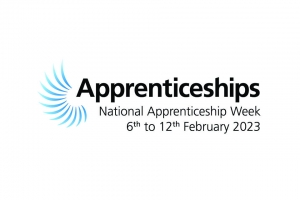Owner
How do you decide a job is right for you?
Last year I wrote a piece on how the recruitment industry has changed to be heavily candidate-led, now, more than ever, this is true. Candidates are so in demand following not only the pandemic and Brexit but significant technological advances, meaning a large portion of the workforce available is classed as “unskilled” for many of today’s tech-driven roles. As an agency we are seeing more and more candidates being offered multiple jobs in the same week. So how can you decide which role is right for you?
One key question I ask candidates when recruiting is “what do you need from a new job/company?”. Is it company structure? Clear progression routes? More money? Whatever the answer, this is a good foundation for deciding which company/industry/role is going to be right for you. If you’re looking to forge a long career in the same company and progress through the ranks, a smaller, family-run business is not the place to do it – choose a larger organization which will give you opportunity to learn new skills and access other areas of the business.
How will this role affect your lifestyle? If, in your current role, you’re able to finish at 2.45 every day to pick the kids up from school and work from home for the rest of the afternoon, it might be worth staying where you are. This kind of flexible working is becoming more common in the workplace but often, trusting employees to work from home is something which needs to be earned. Or maybe the new role is offering better perks and progression routes but the salary is lower than you’re earning now, how will this affect your lifestyle? Will you have to cut back on that weekend away or trips to your favourite restaurant every Friday night?
Will you enjoy this job and what it entails? Will you be challenged enough, will you be motivated enough to fulfill the duties expected of you? These are all important questions when considering if a job is right for you, do you have the required skills, and if so, are they skills you enjoy utilising? Being bored at work or not finding a role interesting is the biggest challenge when it comes to staying motivated at work, if your heart isn’t in it, what’s the point?
Breaking news this morning that Dominic Raab has resigned as Deputy Prime Minister due to bullying claims made against him. Bullying is something you’d think you’d leave behind when you leave school but workplace bullying is more common than you may think. What does workplace bullying look like? And what can you do about it?
The UK government specifies workplace bullying as “behaviour that makes someone feel intimidated or offended”; from abuse of power, humiliating or undermining a colleague deliberately, isolating and excluding someone from a group or as direct as verbal or physical abuse.
If you’re feeling bullied at work the important thing to do is rationally take stock of the situation. Start keeping a record of each occasion you feel intimidated, noting if there was anyone else present and where and when it took place; building up a record will enable you to have a sound argument should you approach the person directly or contact HR. Note down how it made you feel as soon after the event as you can, reading back on instances without emotional back up can sometimes make the event seem more trivial than it was.
Once you feel prepared that you have a comprehensive timeline of the bullying, confront the situation head on, but think carefully about whether to approach the bully first, or HR. Think about if you feel comfortable approaching the instigator directly or if you would rather it be done by a third party and the repercussions of both. If approaching the perpetrator directly, tell them how you feel and give them the opportunity to discuss their view on the situation. In some cases, it may be a misunderstanding, perhaps the bully thinks they are just being jokey or fun and would be horrified to think they had caused upset. If approaching HR, ensure you give a professional, rounded timeline of events to ensure they can investigate and resolve the issue as swiftly as possible.
Interviews, love them or hate them we’ve got you covered!
OK, so not many people love attending interviews but you don’t have to hate them either. If the thought of attending an interview fills you with dread, makes your palms sweaty and brings on hives have a read below of some of our interview hints and tips to help you breeze through the hiring process.
- 1.Don’t set yourself up for failure – preparation is key!
This is possibly one of the most important tips we can offer, the more prepared you are for an interview the more likely you are to succeed. This means researching the company, size, turnover, ethos and most importantly – what it is they do! Here at JR Personnel we manage the whole interview process for you including a comprehensive email before you attend confirming the location of the company, what they do, a link to their website, who it is you’ll be meeting and their job title, full job specification and the type of interview to expect (panel, competency etc.). The more you know about a company shows you are enthusiastic and interested in becoming a part of their team.
- 2.Dress the part
Think carefully about what to wear to your interview and dress appropriately. What’s the industry you will be interviewing for? Is it a very corporate company or family run business? If in doubt, we would always recommend smart, formal attire. It’s also important to remember that even if you’re attending a video interview from the comfort of your own home to still dress appropriately; track suits and pyjamas are a definite no, no! We have also had feedback from clients that they have interviewed people virtually who have been smoking, cooking or sitting in bed – try and find a space in your home where you won’t be distracted, disturbed with a neutral back ground behind you.
- 3.Know where you’re going
It’s so important that you know where you’re going on the day of your interview. If you don’t know the area or the exact location have a trial run there a couple of days beforehand and make sure you allow yourself enough time to arrive. Setting off early for an interview is always advised, that way if you get stuck in traffic or the train is delayed, you’ve still got plenty of time. Plus arriving early means you have opportunity to go through company background and potential questions again beforehand!
- 4.Don’t forget to interview them
Remember, interviews are as much for the client to find out about you as it is for you to find out about them. Having questions prepared not only means you come away feeling more informed about the company and the role but it always impresses clients when you have a couple of questions up your sleeve for the end of the interview. Here are some good examples below:
- Is this a new post or an existing one?
- How would you describe the ideal candidate for this role?
- What opportunities are there for training and progression in this role?
- How long have you worked for the company?
- 5.Body Language
Have you ever thought about what your body language says about you? When you’re being interviewed you want to project your enthusiasm and interest, good posture and eye contact is the perfect way of doing this. If you’re slouching in your chair, fiddling with your hair or looking around the room it can be interpreted as uninterested and rude. It’s normal if you’re feeling a little nervous to over gesticulate, bite your nails or keep touching your hair or face; try to make a concerted effort to keep your hands in your lap.
- 6.Your experience matters
It’s important to not only come across as well informed about the company you’re interviewing for but also about yourself and what is on your CV. Always draw on real-life experiences to emphasize skills you have, particularly if you’ve mentioned them on your CV, for instance when have you shown excellent team work and how did you go about it? How have you gone above and beyond expectations in previous roles?
We hope these hints and tips help you with the interview process but remember, our consultants are always on hand to offer further advice should you need it.
Interviews, love them or hate them we’ve got you covered!
OK, so not many people love attending interviews but you don’t have to hate them either. If the thought of attending an interview fills you with dread, makes your palms sweaty and brings on hives have a read below of some of our interview hints and tips to help you breeze through the hiring process.
- 1.Don’t set yourself up for failure – preparation is key!
This is possibly one of the most important tips we can offer, the more prepared you are for an interview the more likely you are to succeed. This means researching the company, size, turnover, ethos and most importantly – what it is they do! Here at JR Personnel we manage the whole interview process for you including a comprehensive email before you attend confirming the location of the company, what they do, a link to their website, who it is you’ll be meeting and their job title, full job specification and the type of interview to expect (panel, competency etc.). The more you know about a company shows you are enthusiastic and interested in becoming a part of their team.
- 2.Dress the part
Think carefully about what to wear to your interview and dress appropriately. What’s the industry you will be interviewing for? Is it a very corporate company or family run business? If in doubt, we would always recommend smart, formal attire. It’s also important to remember that even if you’re attending a video interview from the comfort of your own home to still dress appropriately; track suits and pyjamas are a definite no, no! We have also had feedback from clients that they have interviewed people virtually who have been smoking, cooking or sitting in bed – try and find a space in your home where you won’t be distracted, disturbed with a neutral back ground behind you.
- 3.Know where you’re going
It’s so important that you know where you’re going on the day of your interview. If you don’t know the area or the exact location have a trial run there a couple of days beforehand and make sure you allow yourself enough time to arrive. Setting off early for an interview is always advised, that way if you get stuck in traffic or the train is delayed, you’ve still got plenty of time. Plus arriving early means you have opportunity to go through company background and potential questions again beforehand!
- 4.Don’t forget to interview them
Remember, interviews are as much for the client to find out about you as it is for you to find out about them. Having questions prepared not only means you come away feeling more informed about the company and the role but it always impresses clients when you have a couple of questions up your sleeve for the end of the interview. Here are some good examples below:
- Is this a new post or an existing one?
- How would you describe the ideal candidate for this role?
- What opportunities are there for training and progression in this role?
- How long have you worked for the company?
- 5.Body Language
Have you ever thought about what your body language says about you? When you’re being interviewed you want to project your enthusiasm and interest, good posture and eye contact is the perfect way of doing this. If you’re slouching in your chair, fiddling with your hair or looking around the room it can be interpreted as uninterested and rude. It’s normal if you’re feeling a little nervous to over gesticulate, bite your nails or keep touching your hair or face; try to make a concerted effort to keep your hands in your lap.
- 6.Your experience matters
It’s important to not only come across as well informed about the company you’re interviewing for but also about yourself and what is on your CV. Always draw on real-life experiences to emphasize skills you have, particularly if you’ve mentioned them on your CV, for instance when have you shown excellent team work and how did you go about it? How have you gone above and beyond expectations in previous roles?
We hope these hints and tips help you with the interview process but remember, our consultants are always on hand to offer further advice should you need it.
Over the past six months nearly 3000 people have taken part in the largest four day working week trial. The trial saw companies offer their employees an extra day off each week without a pay cut, but what do the results tell us?
Perhaps surprisingly (or not, as the case may be) the results are overwhelmingly positive. 56 out of 61 of the companies who took part in the trial are continuing with the four day week, ranging from small local businesses to large, corporate organisations.
Following the Covid19 pandemic, the way we work and want to work has drastically changed with more and more people wanting flexible and remote working so it’s no surprise that businesses are trialing new ways to improve the work-life balance people are so desperate for. The four-day week does exactly that, research shows that 7 out of 10 people taking part in the trial felt less burnout than working five days, taking the opportunity to utilise the additional time to get on top of housework leaving the weekend free for relaxing and spending time with family and friends.
Despite having less hours to complete assigned work loads productivity actually improved in the majority of work places taking part. As a nation we have bought into the concept that the longer you work the more you will get done but actually the reverse may be closer to the truth. Being busier at work does not directly correlate to feeling more stressed, having a day free to sort out “life-admin” and get on top of jobs outside of the workplace was proven to give people a better sense of well being and resulting in less daily stress.
Finally, 2021 recorded the greatest number of sick days than any other year in the past decade. The government is pushing for fewer people on long-term sick according to the Telegraph, with doctors being told to fully assess before signing people off work. Reports from the trial show that during the 6 months there was a 65 percent reduction in people taking sick days from work, which is a huge improvement and will drastically improve business productivity and profits.
Obviously a four day week will not work for all industries or businesses but it’s definitely an interesting topic and something business leaders can no longer ignore.
Life is better with friends – why not introduce yours to JR Personnel!
If you have a friend or a work colleague who is feeling undervalued in their current role, or you know someone who wants to try a new career path or is out of work and wanting a fresh start, why not recommend them to come and register with us here at JR Personnel – we always love to hear from existing candidates friends, colleagues and family and will be happy to help them with finding their new dream role!
They can register their CV on our website or send it to [email protected] or alternatively they can call the office on 01509 211211 to speak to a member of staff.
It’s national apprenticeship week this week, from 6th to 12th February the nation celebrates, learns and has the opportunity to explore the world of apprenticeships.
At JR Personnel we take a look at what it means to be an apprentice and what it means for the recruitment industry.
There are so many perks to being an apprentice, not only for school leavers who don’t want to carry on with higher education and be burdened with the hefty debt, but for people later in life who are looking for a new career direction or vocation.
If you’re straight out of school and dread the thought of having to attend an educational setting again, apprenticeships are a fantastic way to learn new skills and have the security of working in an organisation where you can grow and progress. It’s also an excellent chance for employers to “home grow” their talent, saving potentially thousands of pounds on recruitment and training of new employees.
You might be thinking that apprenticeships are low paid and only temporary positions lasting 3-5 years and this has been proven to be a barrier when people are considering applying for apprenticeships. This isn’t correct, particularly with the UK (and the rest of the world) facing a huge skills shortage, companies are desperate to create a young work force with the right skill set to succeed, and keep them for a significant period of time, so think good salaries and lots of perks post training!
A New Year often means new starts for many of us which is why it’s no secret that January and February are the most popular and busiest months of the year for job seekers and employers alike.
For candidates the first two months of the New Year is a great time to be applying and interviewing for a new job. You’ll find that January is the time of year when the greatest number of decision makers are in office so you’re more likely to get a speedy response from sending your CV in for a role or for an interview. For many companies, new hiring budgets come into force in January so all those roles which were put on the backburner in November and December are finally getting recruited for!
If you’re a candidate looking for your next step this New Year here are a few tips to help make the process more efficient and smoother.
1. Make your CV work for you
January is often a time for reflection and making new resolutions and that old cliché of “New Year, New Me”. That means that whilst you have made the decision to start afresh and look for a new career, potentially so have many others which is why it’s vital that you make your CV stand out from the rest. Simple tasks such as ensuring your CV is spell-checked and your employment history is listed chronologically (most recent role at the top) will make your CV easier to read by potential future employers.
2. Be Prepared
So you’ve done the hard part of getting your CV noticed and you’ve been invited to interview; don’t fall at the final hurdle by not preparing properly for the interview. You can find handy hints and tips for the interview process on our website here: https://www.jrpersonnel.co.uk/career-advice and finally, remember: research, research, research! The more knowledge you have on the hiring company the more equipped you are to succeed at interview stage.
3. Don’t assume it’s in the bag
If you’ve gone new-start-crazy in January like so many do and applied to lots of different roles it may be that you are waiting to hear back from several positions at once. If you’re offered a position and it’s not your 1st choice, think long and hard about if it’s an opportunity you can afford to miss out on – so often we see candidates delay their response to a job offer because of this and end up missing out altogether. Employers will lose faith and confidence in candidates who take time to respond to job offers.
We know particularly at the moment with the cost of living crisis and job uncertainty it can be a daunting and scary time to be looking for a new role, that’s why we are here to help. At JR Personnel we do our best to make you feel at ease and take our time to find a role and company which is a perfect match for you. Unlike many agencies our recruitment consultants are not targeted which means we work hard to find a role that’s right for you, not for our figures. If you’d like to know more about our recruitment process you can find out more on our website or call the office directly on 01509 211 211.
Happy New Year from all of us at JR Personnel, may 2023 be healthy, happy and full of opportunity
It’s the week before Christmas and all through the JR Personnel House not a creature was stirring not even a mouse…Not! The recruitment industry definitely slows down at this time of year but there is always plenty to be done, a great time of year to register and source new candidates, touch base with existing and new clients and catch up on all those niggly admin tasks which we never quite have time for in a normal week.
The past year has finally seen us return to a standard of normality we were used to before the pandemic, albeit we are still not taking walk-in registrations. Whilst hybrid, flexible working is still favourable to many we are seeing more and more candidates wanting to return to the office environment, after two years of working from home in your PJs actually getting up for work and being amongst other adults is starting to look appealing again! Clients too are expecting staff to return to the workplace but with the rising cost of energy prices many are still offering hybrid working where staff can work 2 or 3 days a week from home.
What can we expect from 2023 in recruitment? With the candidate market still remaining very much the same as unemployment remains extremely low, we as recruiters will need to continue to work extra hard to source suitable candidates for positions. This means more proactive candidate engagement and active head hunting which has usually been reserved for highly skilled roles, we will need to continue to put in to force for entry level roles.
Enter Gen Z! That’s right, Gen Z will be gearing up to enter workplaces throughout the world and most likely will not be happy with the way many companies do things currently. They’re the first generation who were born into a full-blown technical world and will expect everything to happen quickly and virtually. If you’re still using paper in your office, expect some reluctance and eco talk from the newbies!
It’s now time to say goodbye for the final time this year, Merry Christmas, Happy New Year and we will see you on the other side, from all of us at JR Personnel!
Wow, what a year it has been when it comes to recruitment; with unemployment being at an all-time low there has been a considerable lack of candidates to fill available roles. Counter-offers have been rife with many candidates being offered more money, better benefits and flexible working to encourage them to stay in their existing roles.
It’s not unusual for companies to stop recruiting all together in the month of December, often company recruitment budgets have run down and let’s face it, nobody wants to be doing the admin which comes with recruitment so close to Christmas.
BUT
Here at JR Personnel we cannot recommend enough to not put your recruitment on hold, here are some reasons below:
Less Competition:
With so many companies not recruiting in December it means there will be more candidates to choose from, in our experience the demand for work actually increases in December, with candidates who are out of work desperate to have the opportunity to earn some money in the run up to the most expensive time of the year, Christmas. For those in work, it’s very appealing to end current employment at the end of the year, ready for a fresh start in January.
More Free Time?
Maybe the industry you work in quietens down during December, it’s not unusual for typical “office based” industries to slow down in the run up to Christmas, as a hiring manager maybe you have more time to recruit, interview and train new candidates?
More candidate applications:
The year is coming to an end and people start thinking about the future and their next steps, with many industries winding down employees have more time on their hands, more time to see what else is out there, more time to apply to roles and register with agencies. December is the perfect time to take advantage of the quiet and advertise those roles you’d thought about putting off until the new year.










